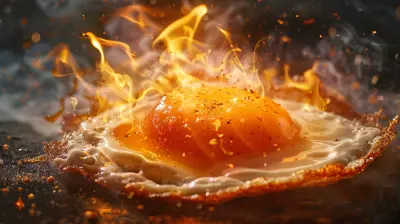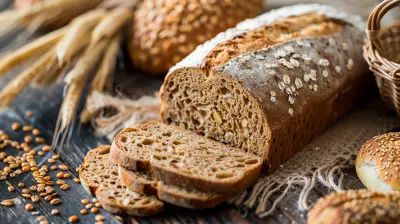Nutrition Tips for Football Players: Building Strength and Speed
20 August 2025
Football isn’t just about talent and hard work—it’s also about fueling your body the right way. Think of your body as a high-performance engine. If you don’t put in the right fuel, you won’t get the speed, strength, and endurance you need on the field.
Whether you're training for a big game or just want to sharpen your athletic abilities, your nutrition plays a massive role in your success. So, let’s break down the best nutrition tips to help you build strength and increase your speed like a pro.
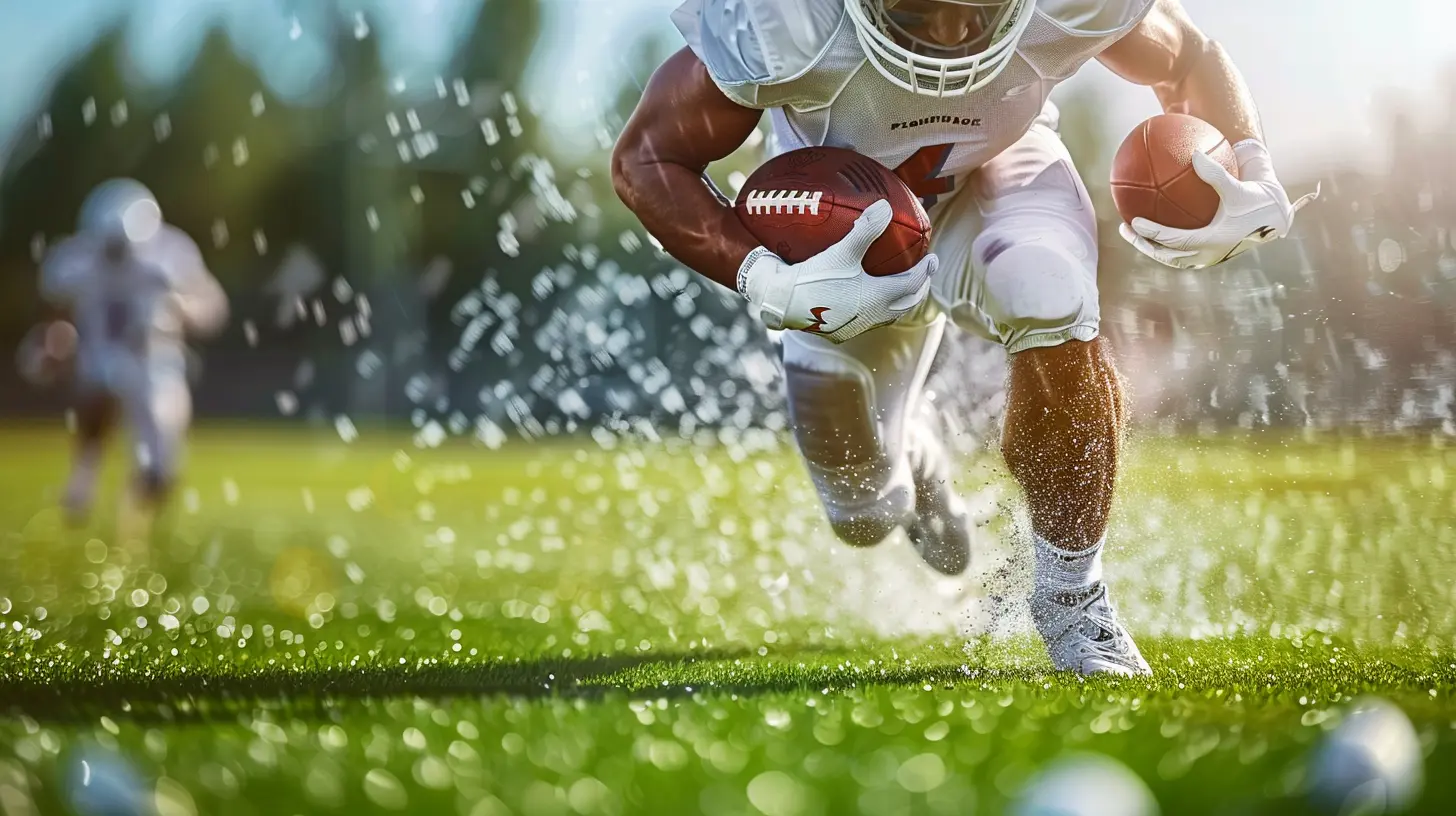
Why Nutrition Matters for Football Players
Football is a physically demanding sport that requires strength, speed, and endurance. These abilities don’t come from workouts alone—your diet has a direct impact on your performance. If you eat the right nutrients, you improve muscle recovery, reduce fatigue, and boost energy levels.Skipping meals or eating the wrong foods? That leads to sluggishness, injuries, and poor performance on the field. Simply put, what you eat can make or break your game. 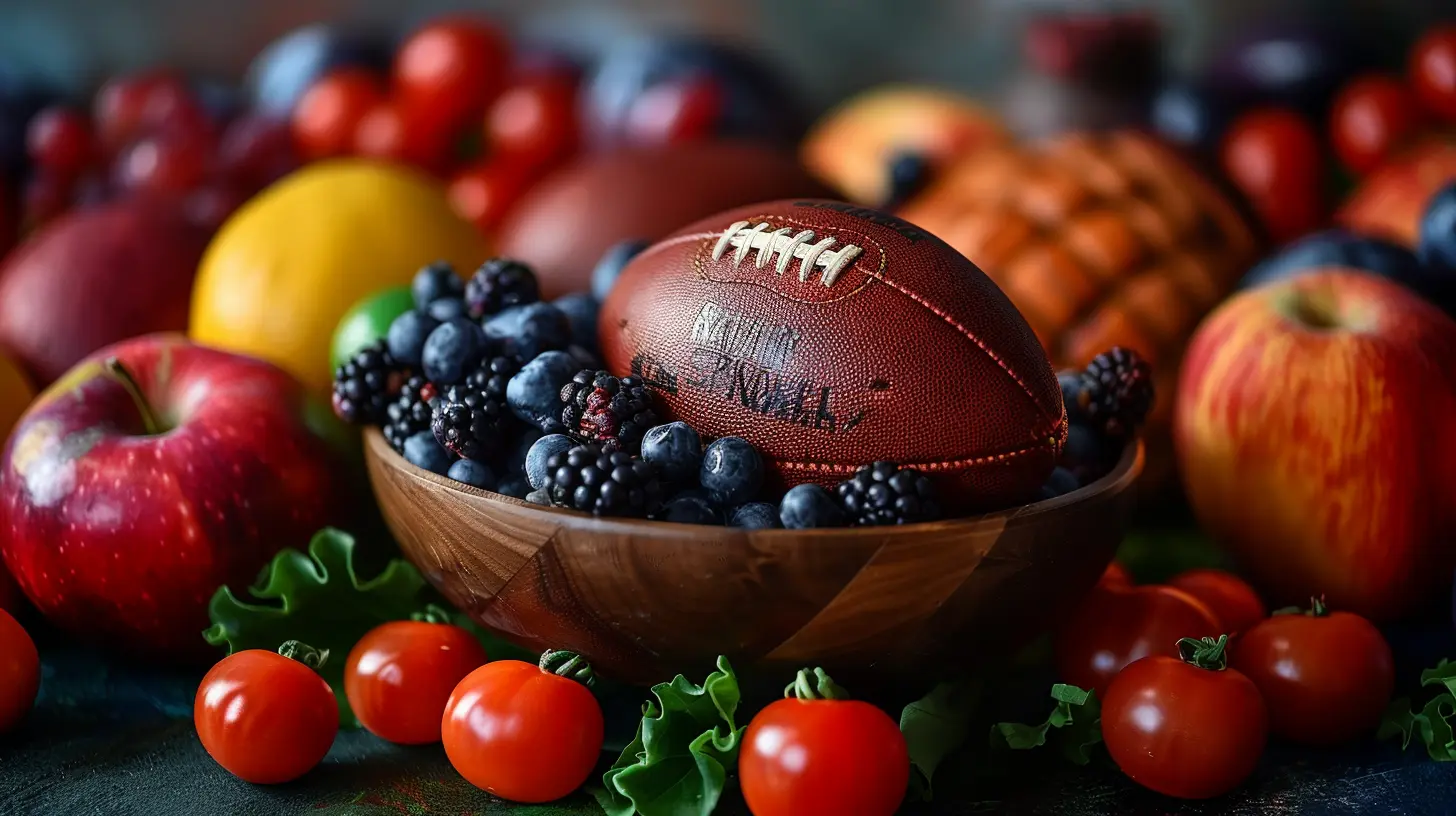
Macronutrients: The Building Blocks of Performance
When it comes to nutrition, football players need a balanced mix of the three primary macronutrients: carbohydrates, proteins, and fats. Let's break them down and see how they power your performance.1. Carbohydrates: Your Primary Fuel Source
Carbs are like the gasoline for your engine—they provide energy for sprints, tackles, and quick movements. Without enough carbs, your muscles will run out of fuel, leading to fatigue.Best Sources of Carbs for Football Players:
✔ Whole grains (brown rice, quinoa, whole wheat bread)✔ Fruits (bananas, oranges, berries)
✔ Vegetables (sweet potatoes, spinach, broccoli)
✔ Legumes (beans, lentils)
Aim to get at least 50-60% of your daily calories from carbohydrates to maintain high energy levels during training and matches.
2. Protein: The Muscle Builder
Football is a high-impact sport, and your muscles take a beating. That's where protein comes in—it repairs muscles, builds strength, and helps you recover faster.Best Protein Sources for Football Players:
✔ Lean meats (chicken, turkey, lean beef)✔ Fish (salmon, tuna)
✔ Eggs
✔ Dairy (Greek yogurt, cottage cheese)
✔ Plant-based options (tofu, lentils, quinoa, nuts)
For optimal muscle recovery and growth, football players should aim for 1.2 to 2.0 grams of protein per kilogram of body weight per day.
3. Healthy Fats: The Secret to Endurance and Recovery
Fats are often misunderstood, but they are crucial for sustained energy and joint health. Good fats keep your heart strong, reduce inflammation, and help your body absorb essential vitamins.Best Healthy Fat Sources:
✔ Avocados✔ Nuts & seeds (almonds, walnuts, chia seeds)
✔ Olive oil
✔ Fatty fish (salmon, mackerel)
Fats should make up about 20-30% of your daily intake, ensuring you stay energized without feeling sluggish. 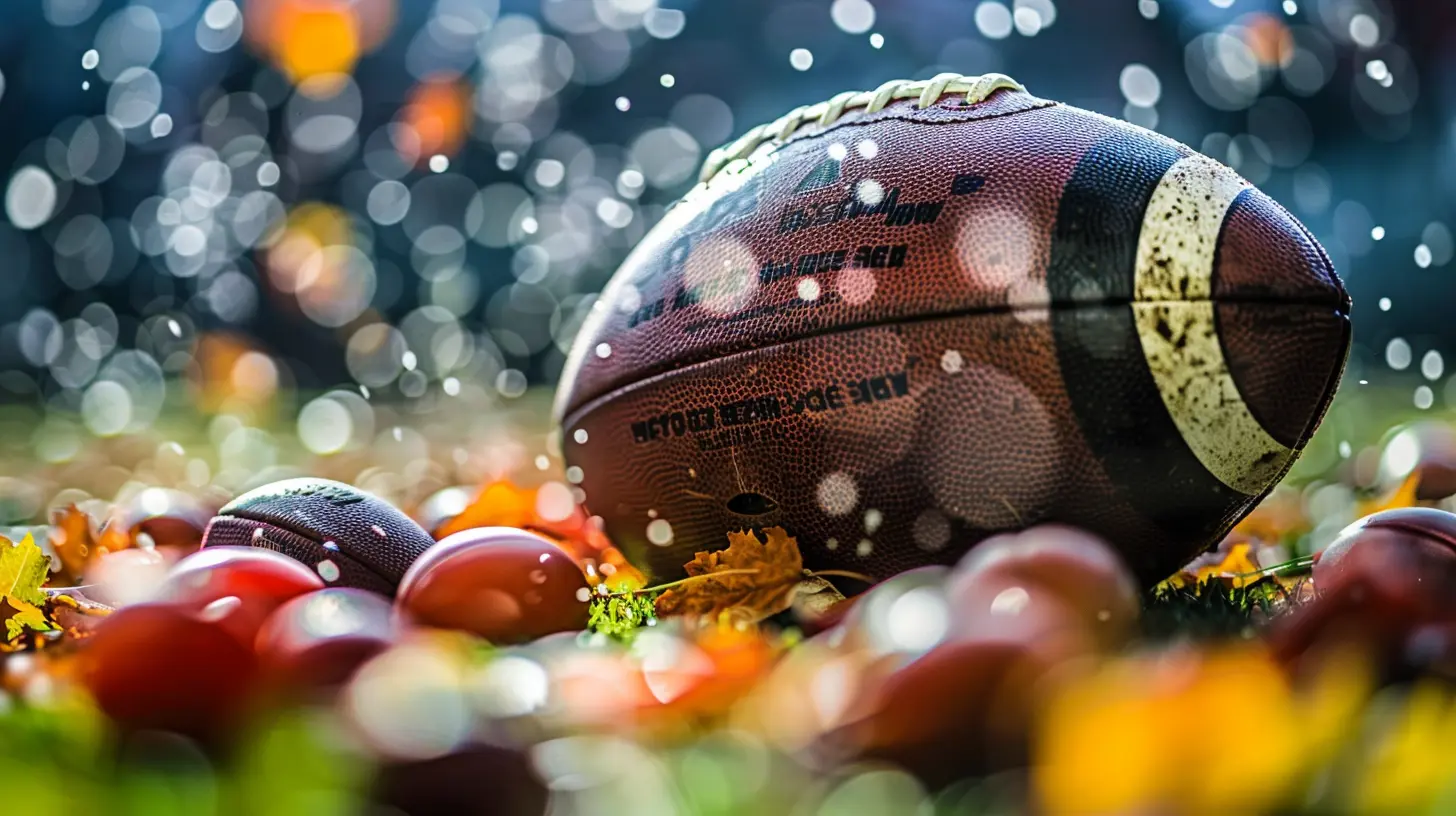
Hydration: The Game Changer
Drinking enough water is just as important as eating the right foods. Dehydration reduces performance, slows reaction time, and increases the risk of cramps and injuries.Hydration Tips for Football Players:
✔ Drink at least 3-4 liters of water daily, depending on training intensity✔ Hydrate before, during, and after games
✔ Include electrolytes (potassium, sodium, magnesium) to replenish lost minerals
✔ Avoid sugary sodas and excessive caffeine, as they lead to dehydration
A simple way to check hydration? Look at your urine color—pale yellow means you’re good, dark yellow means you need more water. 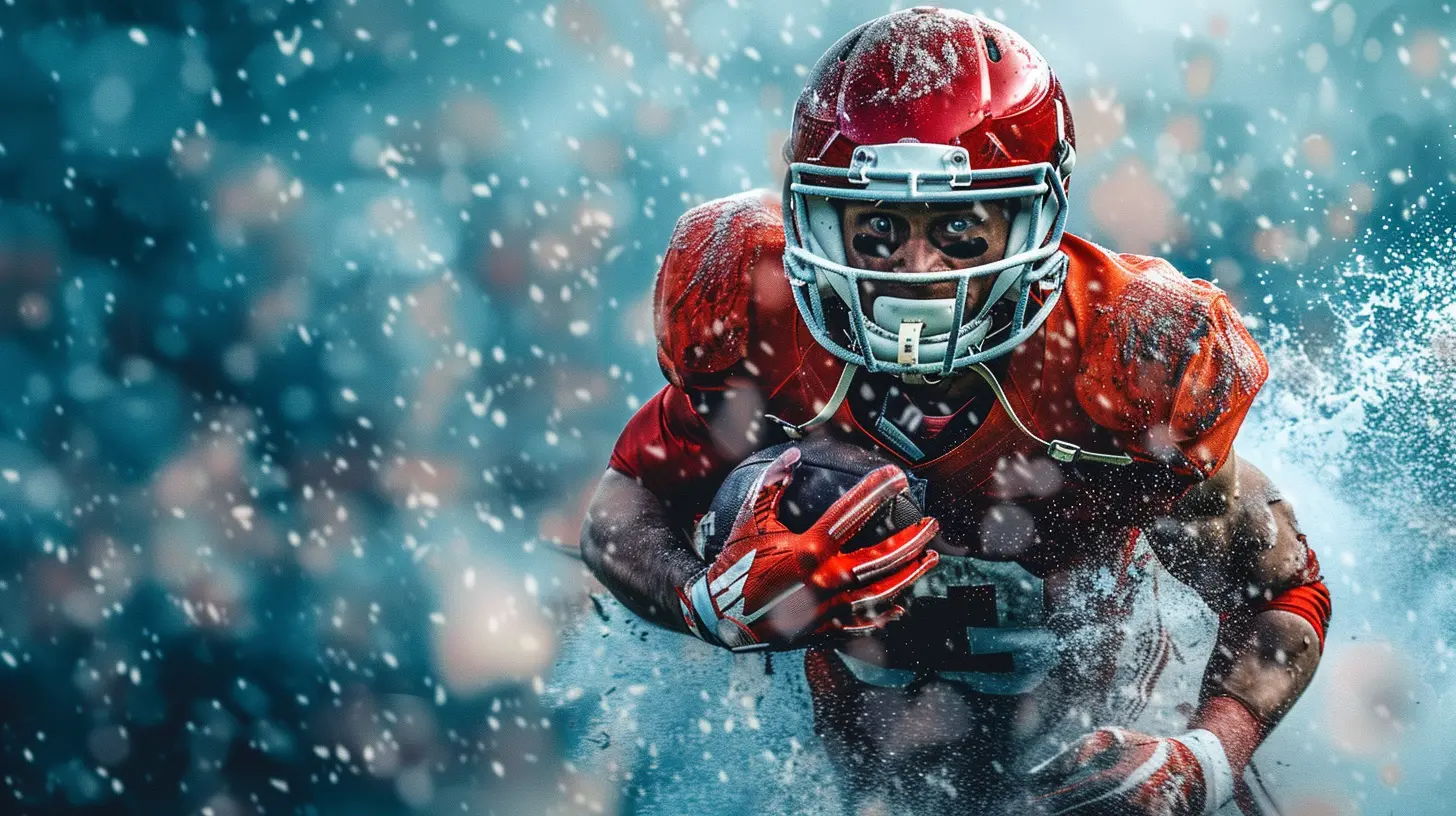
Pre-Game Nutrition: What to Eat Before a Match
Eating the right foods before a game can make a significant difference in your energy levels and endurance.Ideal Pre-Game Meal (2-3 Hours Before Kickoff):
✔ Complex carbs for sustained energy (brown rice, whole wheat pasta)✔ High-quality protein for muscle support (grilled chicken, fish)
✔ Healthy fats to maintain endurance (avocados, nuts)
Good Pre-Game Snack (30-60 Minutes Before Playing):
✔ Banana with peanut butter✔ Greek yogurt with honey
✔ Oatmeal with berries
✔ Protein smoothie
Avoid heavy, greasy, or high-fiber foods right before a game—they can slow you down or cause stomach discomfort.
Post-Game Recovery: Refueling After the Match
After a tough game or training session, your body needs nutrients to repair muscles and restore energy.Best Foods for Recovery:
✔ Protein-rich foods (chicken, eggs, Greek yogurt)✔ Carbohydrates to replenish glycogen (sweet potatoes, whole grains)
✔ Hydrating drinks (water, coconut water, electrolyte drinks)
A protein shake with a banana is a great post-match recovery snack that helps rebuild muscles quickly.
Supplements: Are They Necessary?
While a well-balanced diet should provide all the nutrients you need, some football players benefit from certain supplements.Helpful Supplements for Football Players:
✔ Whey protein – Helps meet daily protein requirements✔ Creatine – Improves power, strength, and endurance
✔ BCAAs (Branched-Chain Amino Acids) – Reduces muscle soreness
✔ Omega-3s – Reduces inflammation and supports joint health
✔ Vitamin D & Calcium – Strengthens bones and prevents injuries
Remember, supplements should complement, not replace a healthy diet. Always consult a nutritionist or coach before taking new supplements.
Diet Plan for Football Players: A Sample Meal Plan
Here’s a simple meal plan to keep you fueled throughout the day:Breakfast:
✔ Scrambled eggs, whole wheat toast, and avocado✔ Greek yogurt with granola and berries
Mid-Morning Snack:
✔ Nuts and a banana✔ Protein shake
Lunch:
✔ Grilled chicken, quinoa, and steamed vegetables✔ Whole-grain pasta with lean ground turkey
Afternoon Snack:
✔ Hummus with whole grain crackers✔ Cottage cheese with fruits
Dinner:
✔ Baked salmon with sweet potatoes and asparagus✔ Stir-fry with brown rice and tofu
Post-Workout Snack:
✔ Chocolate milk or a protein smoothieCommon Nutrition Mistakes to Avoid
Even the best players make nutrition mistakes. Here are some common pitfalls and how to avoid them:🚫 Skipping meals – Leads to low energy and poor performance
🚫 Too much junk food – Slows recovery and causes fatigue
🚫 Not drinking enough water – Increases risk of cramps and dehydration
🚫 Eating too much before a game – Can make you feel sluggish
🚫 Ignoring post-game recovery – Delays muscle repair and growth
By avoiding these mistakes and focusing on balanced nutrition, you’ll always be ready to bring your A-game.
Final Thoughts: Fuel Your Body Like a Champion
Football isn’t just about skill and practice—it’s about giving your body the right nutrients to perform at its peak. From carb-loading before big games to staying hydrated, every meal and snack plays a role in your success.Make smart choices, stay consistent, and watch how the right nutrition boosts your speed, strength, and endurance. Now, go fuel up and dominate the field!
all images in this post were generated using AI tools
Category:
Sports NutritionAuthor:

Madeline Howard
Discussion
rate this article
1 comments
Levi McDowney
Great article! Nutrition plays a crucial role in enhancing performance on the field. Your tips for fueling strength and speed are not only practical but also easy to implement. Thanks for sharing these valuable insights that can help athletes optimize their training and stay healthy!
August 31, 2025 at 3:18 PM

Madeline Howard
Thank you for your kind words! I'm glad you found the tips helpful for optimizing performance. Happy training!

